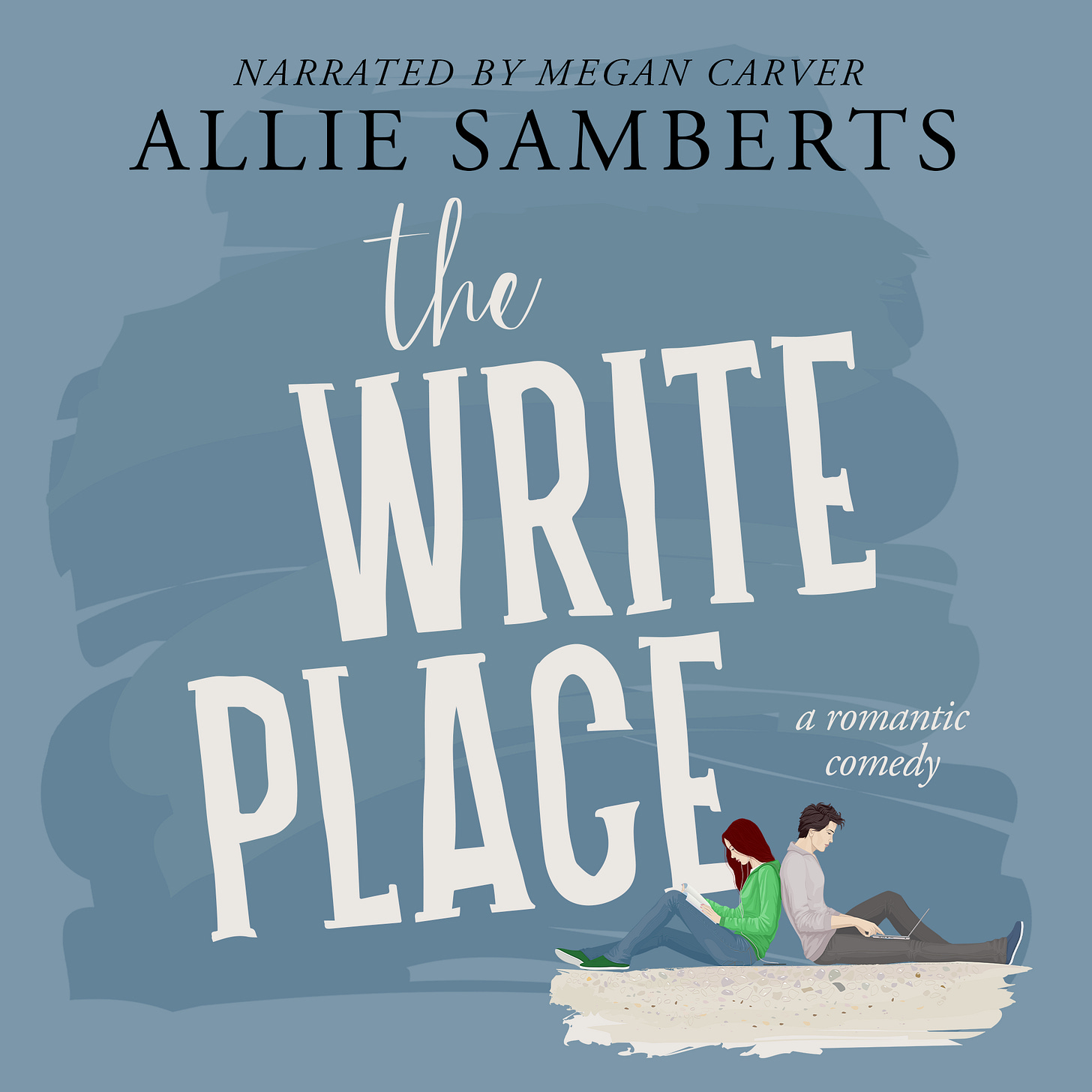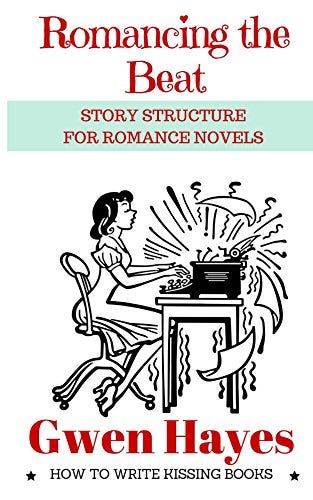Teachers love their mottos, and I’m no exception. And mottos in Latin? Sign me up. I’m going to talk a little more about this one as it applies to books, but first…
I let it slip on my Instagram live with Megan Carver that I actually drink mostly just black coffee, which I think I have mentioned on here before, but with how much I’ve pumped up pumpkin spice, I felt like a traitor saying it aloud in October. So, after that, I’ve put flavor in my coffee every day this week, and I decided to get a little creative. So this week, I’ve had pumpkin spice (because, duh) and cinnamon dulce flavor syrup mixed in my coffee and… y’all… my head just about exploded. It’s so good. Definitely try it out.
When I was a baby teacher—not even a baby teacher, technically, because it was when I was student teaching—I had an amazing professor. He was a retired high school English teacher who worked part time with my university to help coach student teachers, essentially. He was the kind of guy who you just knew had been an awesome teacher in his day. Passion for teaching and literature came off him in waves, and he had a lot of energy. I always looked forward to his classes, and to his feedback on my teaching when he’d come observe me.
In true teacher form, he had a lot of mottos. (Teachers really love their mottos.) One was, “Teach like your hair is on fire,” which I have since taken into every aspect of my life. Basically, I live by the phrase, “Do everything like your hair is on fire.” Which sometimes looks the way I’m sure he meant it at the time: doing everything with verve and passion and joy. Sometimes, it looks like literally running around in a panic as if my hair has caught on fire. (But that is another post for another time.)
One of his other mottos was de gustibus non disputandum est. This is Latin, and directly translated, it means something like, “Of taste, there is no disputing.” My professor would always say, “You can’t argue taste.”
For an English teacher, reader, and now author, this is a great motto to have. I need to tattoo it to my body as a reminder, honestly. Because it really is that simple. You can’t argue taste.
Here’s a concrete example for you. My husband doesn’t like mushrooms. Hates them. Will not eat them. Prefers if we cook things without them, but will actually pick around them if they are in the dish. He’s 40 years old, folks, and he still picks around mushrooms in meals. He just doesn’t like them. Which is weird, because one of his favorite foods is beef stroganoff, which I’m pretty sure almost always has mushrooms that he does not eat. But, whatever my dude.
I, however, love mushrooms. Okay, love is a strong word, but I do really like them. Maybe it comes from years of being a vegetarian in the early aughts when every meat patty was replaced with some kind of mushroom (which is not nutritionally equivalent, so what were we thinking?), but I enjoy their texture and earthiness. The idea of edible fungus is also fascinating to me. I know. I am who I am.
But here’s the thing. I will never persuade him to like mushrooms. He just doesn’t like them.
If you’re a reader (and I’m sure you are, because why else are you here?), you’ve probably heard people say they just don’t like certain things in books. They don’t like third person. They don’t like present tense. They hate unplanned pregnancies. They won’t read about throuples. The list could go on and on. You might even have a few things you can’t stomach in novels, too. I sure do.
I’m here to tell you, as an author and a reader, that’s okay. It’s okay to have things you don’t like. It’s okay to have things you won’t touch. It’s okay to have your mushroom equivalent in book form. There’s nothing wrong with not wanting to read or consume certain things. You can’t argue taste.
But—and this is what I tell my students—while it’s okay to not like something, it’s not okay to use that thing to discount the art or, by extension, the artist entirely. To extend the metaphor, my husband does not like mushrooms. That’s fine. But he does not tell everyone else that they should not ever eat mushrooms. He’s not on a crusade to save people from “bad food” that includes mushrooms. He doesn’t use the incorporation of mushrooms in a dish to talk about how the chef is incompetent.
Of course he doesn’t do these things. It would sound ridiculous. And yet, we tend to do this with literature. We won’t even try a book with something we don’t like. Or, worse, we do read it knowing we may not like it, and then say nasty things about how bad it is because it includes something we knew going into it we wouldn’t like. Sometimes, we know why we didn’t like it, but we think that means everyone else will not like it, too. Some even think that by dragging a book in a public forum, they’re saving others from reading bad books. (I hear this so often.)
That’s all well and good. You’re allowed to hate-read things and write reviews about them. But what I think is missing from the conversation is an understanding that your like or dislike of something is personal preference. It does not make it a bad book. It makes it not the book for you.
I could make the best portabella mushroom sandwich the world has ever tasted. My husband would still not like it. It doesn’t mean I’m a bad cook or I’ve made a bad sandwich. It means he doesn’t like mushrooms.
I could also write the best book in the world with an accidental pregnancy. If you don’t like accidental pregnancies, you probably still won’t like it. It doesn’t mean I’m a bad author or I’ve written a bad book. It means you don’t like accidental pregnancies.
Now, in a classroom setting, students don’t get to pick what they read a lot of the time. So this translates to a discussion of the author’s purpose, writing style, use of language… basically the craft of writing. That’s where de gustibus non disputandum est comes in. Yeah, you didn’t like it. That’s fine. We’re going to analyze it anyway.
When we’re reading for fun, it doesn’t work like that. We didn’t like it; we write about how we didn’t like it. We are most likely not going to take the time to do an in-depth analysis of the writer’s craft even for a work we did like, let alone one we didn’t. Because this is supposed to be fun. And that’s fine! But, just like we wouldn’t leave a bad review of a dish—or a restaurant—because something on the menu had mushrooms, we likely shouldn’t base an entire review on an element we don’t like.
All of this is to say that your least favorite book might be someone’s most favorite book of all time. Which is something we hear a lot, but I don’t think we talk about it enough. You can’t argue taste! So let’s not yuck other people’s yums. There’s something out there for everyone, even if their thing isn’t for you.
I have listened to The Write Place audiobook in it’s entirety, and I cannot say enough wonderful things about it. It is so good. SO GOOD. It was an entirely different experience than reading the print version. The way I like to think about it is that I gave each of these characters a skeleton, and Megan gave them flesh. (That’s a gross metaphor, but it’s spooky season, so I’m gonna roll with it.) In all seriousness, though, she breathed a new life into these characters that I could only wish for in my wildest dreams.
The audiobook is in review now, and should be available in the next few days. You can expect a separate newsletter letting you know when it’s released!
The Write Choice is also being edited, and Megan and I have already had some great conversations about it. Her insight into these characters is invaluable, especially having worked so hard on The Write Place already. You can look forward to a cover reveal soon, and shortly after that, ARC sign-ups. If you got the email that you’ve been selected for my permanent ARC team, or that you applied for the Street Team and weren’t selected, you’ll get an ARC automatically—no need to sign up. If you didn’t get that email and fell you should have, let me know and I can look into it.
Does reading my own audiobook count? Because that’s what I’ve been doing this week.
I know it does count for my reading goal, but I’ve already left my review above. (5 stars, but I might be biased.) So, in the interest of sharing a recent read, I’ve also been taking a romance editing course in preparation for offering editing services in 2024. This little book was so informative! It was all stuff I kind of already knew, having been a student of literature and a voracious romance reader for many, many years, but I’m using it to outline my next novel, and it is super helpful! If you are a romance writer, definitely check this one out.
That’s it for now! Stay tuned next week for another Indie Author Feature Friday post, and look out for The Write Place audiobook release! Until then, may your coffee be hot (but never burn your tongue).












